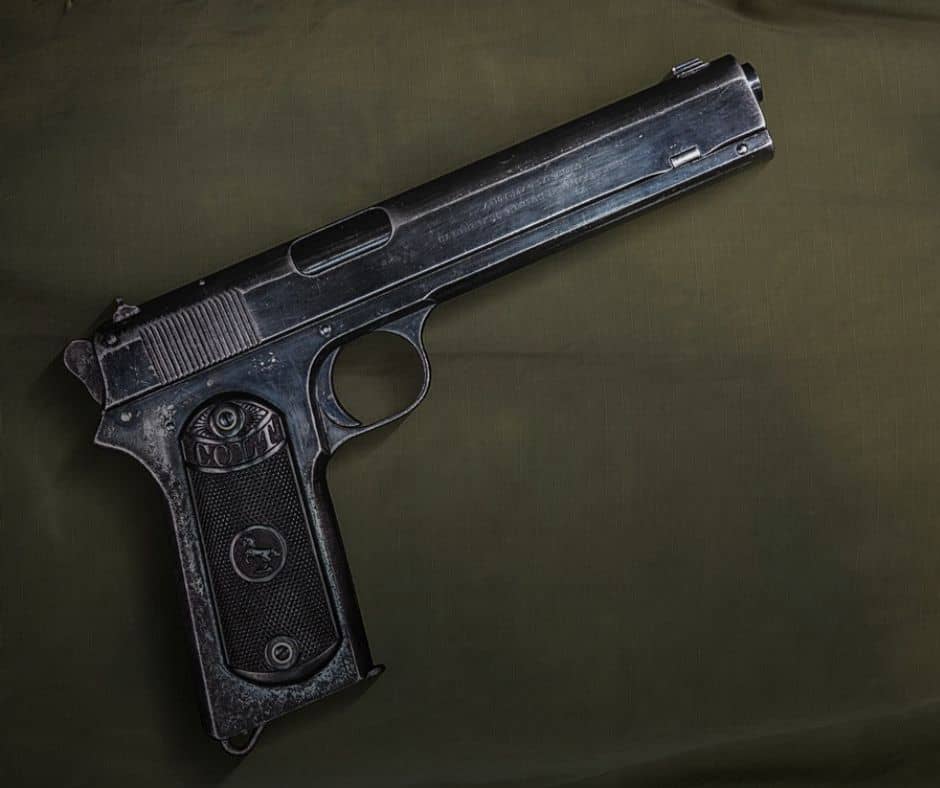Can You Legally Carry a Gun Across State Lines?

As a law-abiding gun owner, few questions loom larger than whether you can legally carry your firearm across state lines. Perhaps you’re planning a hunting trip, visiting family, or simply want the reassurance of being able to exercise your Second Amendment rights while traveling.
Whatever the reason, understanding the laws surrounding interstate firearm transportation is crucial.
The short answer is yes, you can legally carry a gun across state lines in the United States – but there are very specific federal laws and state regulations that you must follow to remain fully compliant. Here’s what you need to know to stay compliant and avoid criminal charges.
Federal Laws on Transporting Firearms Across State Lines
Under the Firearms Owners’ Protection Act (FOPA), federal law permits you to transport a firearm for lawful purposes from any place where you may legally possess it to any other place you may legally possess it, as long as the firearm is unloaded and locked in a hard-sided container.
So, let’s say you’re a gun owner in North Carolina with a valid concealed carry permit. You want to take a road trip up to Pennsylvania to go hunting with some buddies. As long as your firearms are stored properly unloaded and locked up, you can legally transport them through any states you need to travel through to get to Pennsylvania.
But the moment a firearm is either carried on your body, loaded and within reach inside a vehicle, or readily accessible in any capacity, the specific state and local laws regulating firearm possession and carrying take precedence.
The key is following FOPA’s rules to the letter on unloaded, locked storage during that interstate transit. Do that, and you’ve got federal protection against prosecution under certain gun laws as you’re just passing through.
State Laws and Reciprocity Agreements for Concealed Carry
While the federal FOPA laws give you a legal framework for transporting firearms across state lines, you also need to pay close attention to the specific state laws involved, especially when it comes to concealed-carrying handguns.
North Carolina has reciprocity agreements in place with 25 other states that have indicated they will honor our state’s concealed carry permits.
These states include:
- Alabama
- Alaska
- Arkansas
- Florida
- Georgia
- Idaho
- Illinois
- Indiana
- Iowa
- Kentucky
- Louisiana
- Michigan
- Minnesota
- Mississippi
- Missouri
- Nevada
- North Dakota
- Oklahoma
- Pennsylvania
- Rhode Island
- South Carolina
- South Dakota
- Utah
- Virginia
- Washington
- West Virginia, and
- Wyoming
But this is not necessarily a two-way street. Just because we honor other states’ permits, doesn’t automatically mean they’ll honor ours if we want to conceal carry there. Many states have their own unique reciprocity maps of which state permits they’ll recognize.
It’s important to note that this list can change annually as states update their reciprocity policies. Additionally, even when a state recognizes your North Carolina permit, you must still familiarize yourself with and obey all their specific concealed carry regulations while visiting.
That’s why it’s absolutely critical as a concealed carrier to research the specific firearm laws for any state you plan on traveling to with your handgun. Some state laws may seem strange or overly restrictive, but ignorance is no excuse – you could face serious penalties for violations.
Stopping During Interstate Travel: What Gun Owners Need to Know
If you stop while traveling interstate, your firearms need to stay properly locked and unloaded in their cases – never take them out during a stop.
Some state laws also get very specific about protocols for things like leaving firearms unattended in vehicles during stops. North Carolina, for instance, has a law allowing concealed carry permit holders to store handguns in locked vehicles on certain private premises like campuses. But the rules can get complicated.
The smartest approach is simply to avoid any unnecessary risks during travel stops. Keep your ammo locked away separately, don’t open any gun cases, and get back on the road efficiently. An abundance of caution keeps law-abiding gun owners like us from inadvertently running afoul of the law.
Consequences of Violating Interstate Firearm Transportation Laws
We can’t stress enough how serious the consequences can be for violations of interstate firearm transportation laws. These aren’t just small fines or misdemeanors – you could potentially face felony charges that result in hefty fines and prison time depending on the violation.
Even if you avoid criminal penalties, a firearms transportation violation could still severely impact your gun ownership rights. Your concealed carry permit could be suspended or permanently revoked. You may be prohibited from purchasing or possessing any other firearms in the future. Mistakes can prove extremely costly.
And remember, “I didn’t know the law” or “I didn’t intend to break it” are not valid legal defenses against these charges. As gun owners, we accept the responsibility of thoroughly understanding and following all applicable local, state, and federal firearms regulations.
We’ve seen good people make honest mistakes that end up changing their lives. That’s where working with experienced weapons lawyer can make all the difference for responsible gun owners trying to follow the letter of the law.
Avoid Costly Firearms Mistakes – Consult Our Criminal Defense Team
At McMinn, Logan & Gray, we’ve built our practice on not just defending the rights of law-abiding gun owners, but also educating and empowering them. We believe knowledge is the greatest tool against inadvertently running afoul of firearms laws.
That’s why we encourage any gun owners with questions or concerns about North Carolina’s laws – or legal transportation across state lines – to reach out to our firm for a consultation. Don’t let uncertainty lead to costly mistakes. Let our experienced team guide you through the complex patchwork of regulations and ensure you understand your rights and responsibilities as a legal gun owner.
From concealed carry permits to interstate travel with firearms, we make it our mission to protect those who respect their awesome responsibility. Contact us today and exercise your rights confidently and legally.
